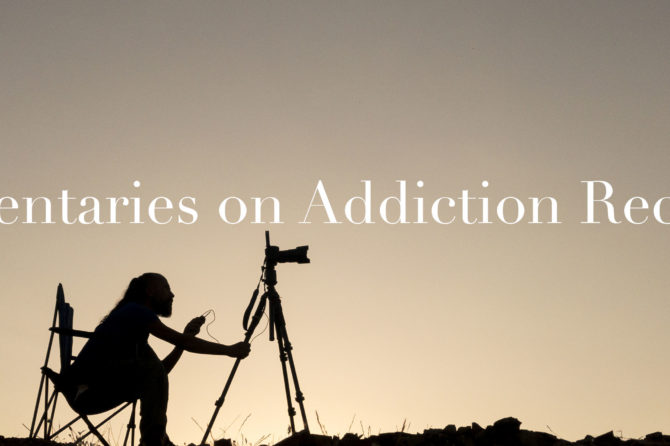
Top 5 Documentaries on Addiction Recovery That Help
Oftentimes, the best stories about recovery can be found in documentaries; and there have been plenty, detailing the highs and lows of recovery and the joys of staying the course. But which are the best? We’ve put together a list of our favorite five – including docu-dramas – for you to kick back to and find inspiration in.
RUSSELL BRAND: FROM ADDICTION TO RECOVERY (2012)
In no particular order, we’re kicking off with Russell Brand: From Addiction To Recovery. Inspired by the death of his friend Amy Winehouse, who passed because of an overdose, Russell wanted to make a film that looks at addiction but without the sad ending. Russell got clean at the age of 27 – the mythical age that so many addicted rock stars die at (and, indeed, the same age Amy Winehouse was at the time of her passing). In this film, Russell connects with all sorts of insightful people – from scientists who spend every day of their lives researching the psychology of addiction to those creating cutting-edge recovery treatments to the addicted themselves.
Russell asks the hard questions; “Is addiction a disease? Should it be criminalized? Is abstinence-based recovery, a way forward?” He spends the time wisely, challenging both institutional theory and practice in addition to confronting government policies and the harsh realities of addiction.
Brand has written a few books on recovery in his breezy, funny style and the documentary is no less engaging.
You can view the hour-long documentary on YouTube here.
THE ANONYMOUS PEOPLE (2013)
This indie documentary takes a unique approach to recovery and addiction, focusing more on the solutions than the problems. The film takes a broad look at the 23 million Americans living in long-term recovery from addiction; from citizens to leaders, volunteers to corporate execs, all of whom are adding fuel to a conversation that’s aim is to change public perception and policy.
According to the Many Faces 1 Voice website, the 88-minute documentary discusses the “deeply entrenched social stigma and discrimination” that has kept recovery voices mute and hidden for years. “Just like women with breast cancer or people with HIV/AIDS, courageous addiction recovery advocates are starting to come out of the shadows to tell their true stories.”
One critic, whose husband is in recovery, said “We needed this wake-up call! We were all inspired by [the film’s] message and will carry it with us!”
You can purchase the documentary here.
THE SHIFT (2009)
A docu-drama focusing on (and starring) Dr. Wayne W. Dyer that explores the themes of a spiritual journey from addiction to recovery. The film features three different people, all of whom are looking to find purpose – but speaks to us all in how to craft a life filled with meaning.
As Dr. Dyer himself puts it, “The Shift illustrates how and why to make the move from ambition to meaning. Such a shift eliminates our feelings of separateness, illuminates our spiritual connectedness, and involves moving from the ego-directed morning into the afternoon of life where everything is primarily influenced by purpose.”
As one critic puts it, “You will find the movie inspiring if not life-altering.”
MY NAME IS BILL W (1989)
Less a documentary and more a docu-drama, this 1989 film tells the true story of a stockbroker called William Griffith Wilson. Bill was a WW1 vet whose drinking became a full-blown addiction after the stock market collapse in 1929. The film focuses on the relationship he strikes up with Dr. Robert Holbrook Smith, a fellow addict, and the support group they start up. Of course, we all know that later became Alcoholics Anonymous but the story of how it came to be as powerful.
As one critic puts it, it’s a “very intelligent, well written, well acted, important story.”
GENERATION FOUND (2016)
This documentary is from the same people behind The Anonymous People and focuses on a Houston community coming together to ignite a youth addiction recovery revolution in their hometown.
Sick of burying or locking up young people, a bunch of visionary counselors, law school dropouts, aspiring rock musicians, retired football players, oil industry executives, and church leaders came together to build the world’s largest peer-driven youth and family recovery community.
Shot over two years, the film takes a look at how a consortium of treatment centers, sober high schools, alternative peer groups, and recovery programs can work together and work early enough to make a difference.
Any of these five films will ultimately leave you uplifted and inspired, despite the struggles contained in each. Struggles we’re all too familiar with, but endings we are all striving for.
Leave a reply